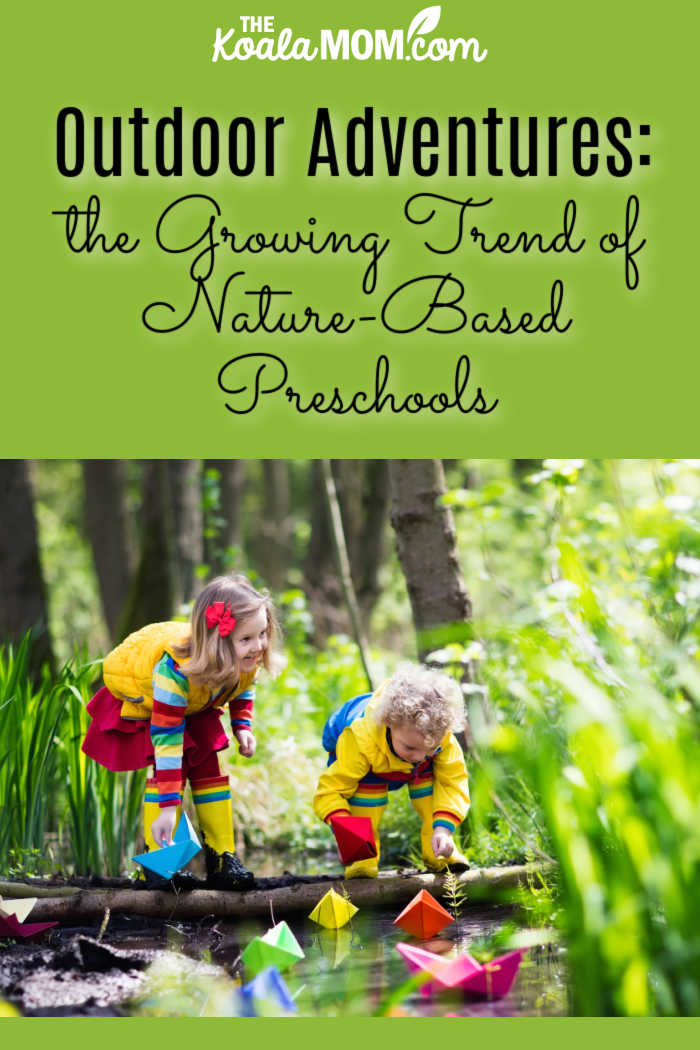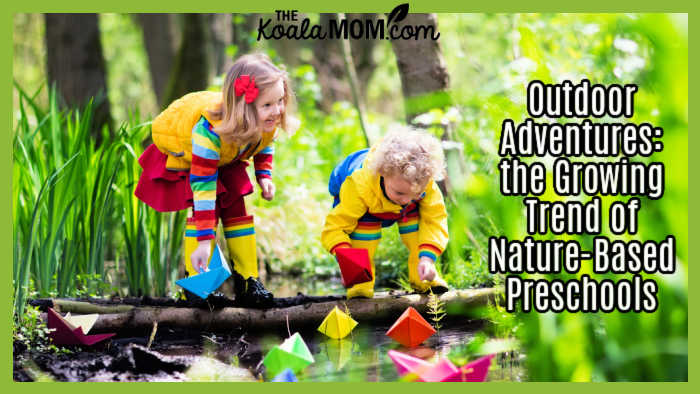An increasing number of nature-based preschools are being established all over North America as more parents have seen the positive effects of the outdoors on their children. According to a Natural Start Alliance report, nature preschools and kindergartens experienced significant growth over the past few years, from 250 in 2017 to more than 800 in 2022.
In these al fresco schools, children spend hours playing in nature daily. School activities are fun ways to pass the time. But if you look closer, you will see that these kids learn practical life skills as they connect with their peers and the natural world. Here are all the things your child will learn in a nature-based program and why enrolling your preschooler in a nature school can benefit their overall development.

Instils Appreciation for Nature and the Environment
A study found that Generation Alpha, or children born from 2010 to 2024, care more about social issues than previous generations. One of the things that they feel passionate about is the environment, and the research found that 95 percent of Gen Alpha kids feel strongly about protecting the planet. Today’s preschoolers will better appreciate nature if they establish a relationship with the natural world.
Parents can help foster a love of the environment in their kids by allowing them to spend more time outdoors and by having them attend a nature-based preschool. Here, children learn about plants, animals, the weather, the changing of seasons, and the impact of specific actions on the planet, among others. As kids spend most of their day outside, these natural experiences become instrumental in their learning, and they become more appreciative and concerned about the environment.
Develop Healthy Eating Habits
Most children need to learn where their food comes from and need help to identify the origins of their favorite foods. According to a study, 41 percent of kids claimed that bacon came from a plant. Since most foods that preschoolers are familiar with come in neat little plastic packages, it is understandable why kids have so many misconceptions about what they eat daily.
However, knowing where food comes from at an early age can inspire children to follow a healthy lifestyle, which can help prevent the development of diseases like childhood obesity or diabetes. Moreover, knowing where food and drink come from encourages kids to be more aware of the nutrients that come from the things that they consume, enabling them to make better food choices now and in the future. It also helps them be less picky and more open to new foods.
Kids learn more about food at a nature-based preschool since they can access places where food grows. For instance, they may go on a tour of the woods where they can find mushrooms. Later, they will learn about different types of mushrooms, how to identify edible from toxic fungi, and how to prepare and include them in easy recipes. They may also visit fruit orchards and learn about different fruit varieties while picking them from the trees, or they could go to an olive grove and discover the development of olive oil.
Promotes Real Life Application of Scientific Concepts
Learning science from books or lectures allows kids to get valuable knowledge. However, learning at a nature-based preschool will enable kids to discover scientific concepts and see how to apply science to everyday life. For example, knowing about different soil types in the classroom is one thing. But to see, feel, smell, and touch soil enables children to quickly identify the various types and learn which ones are good for gardening, pottery, or building houses.
Once these children become adults, the practical knowledge they gain through nature-based learning can help them be more self-sufficient, and they will know how to use the resources around them efficiently and sustainably.
Improves Mental Health and Well-being
Spending too much time indoors can be detrimental to a child’s health. Not only do they get less time to play and exercise, but they also develop unhealthy habits, such as excessive screen usage. Research has shown that too much screen time can lead to mental health problems such as depression and anxiety, and it may even result in poor sleep quality and lack of focus on children.
Enrolling in a nature-based school can increase your preschooler’s outdoor time, as they spend nearly half of a regular school day in nature. Evidence shows that being in green spaces can enhance mental health since it links to improvements in mood and better emotional well-being. Time spent in nature can ease stress and anxiety and promote positive emotions, such as joy and calmness, which results in a happier and well-adjusted child.

Nature-based preschools can benefit your little one in many ways. Find a nature-based school near you if you are seeking a different learning environment for your child, and see how it makes them happier and healthier in the long run.
Sandra Chiu works as Director at LadyBug & Friends Daycare and Preschool.

No Responses Yet